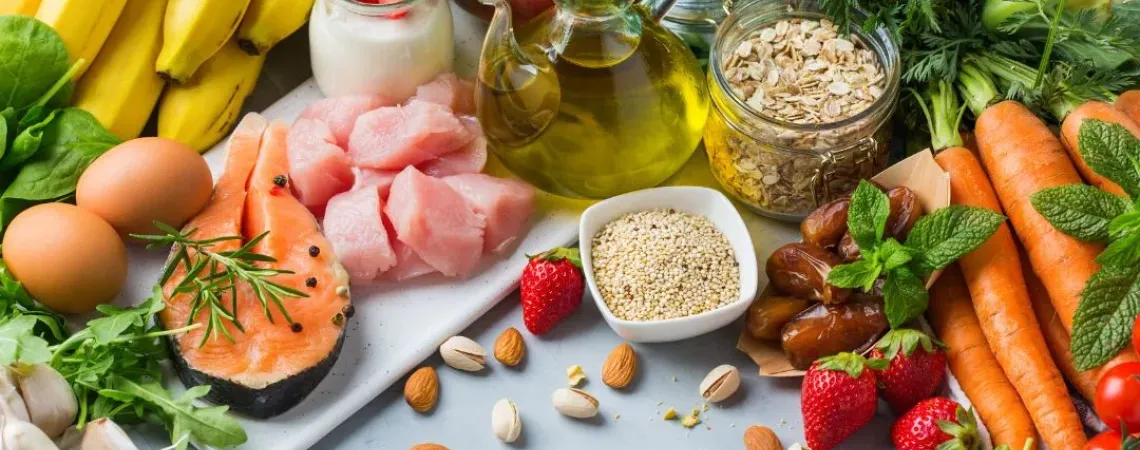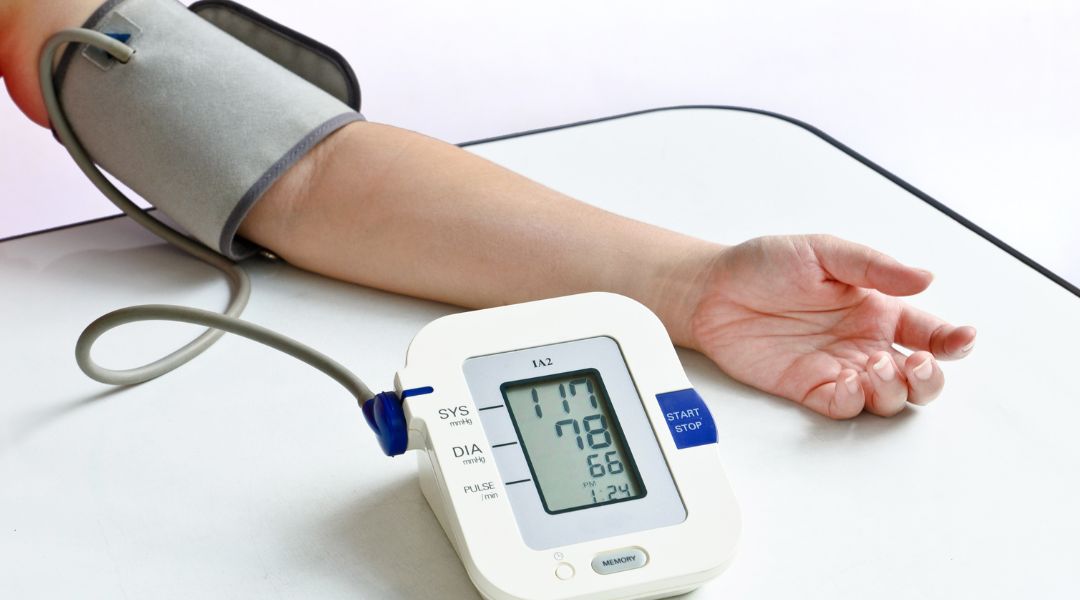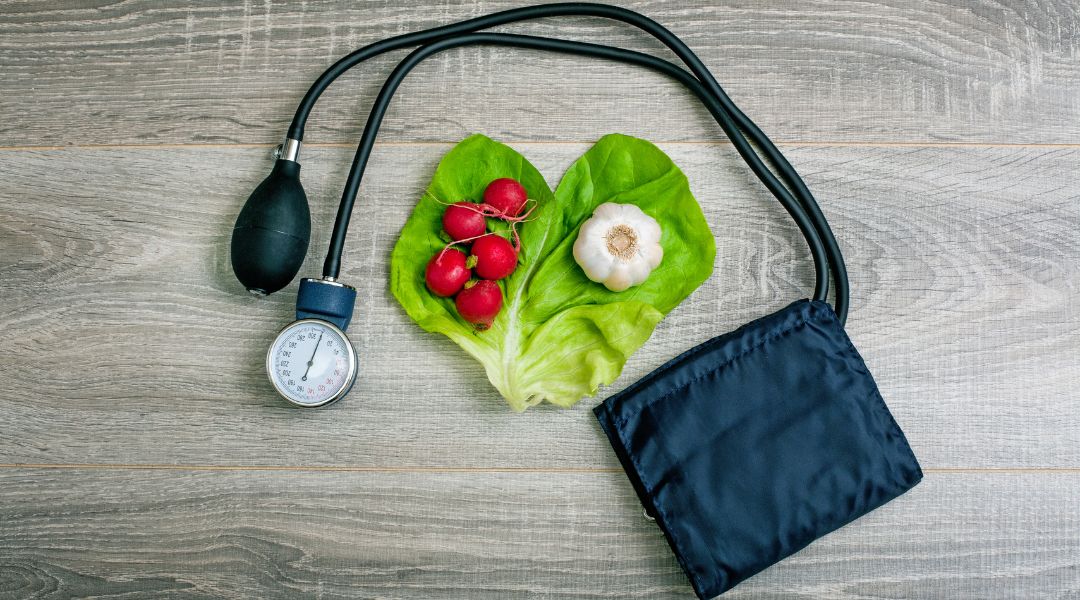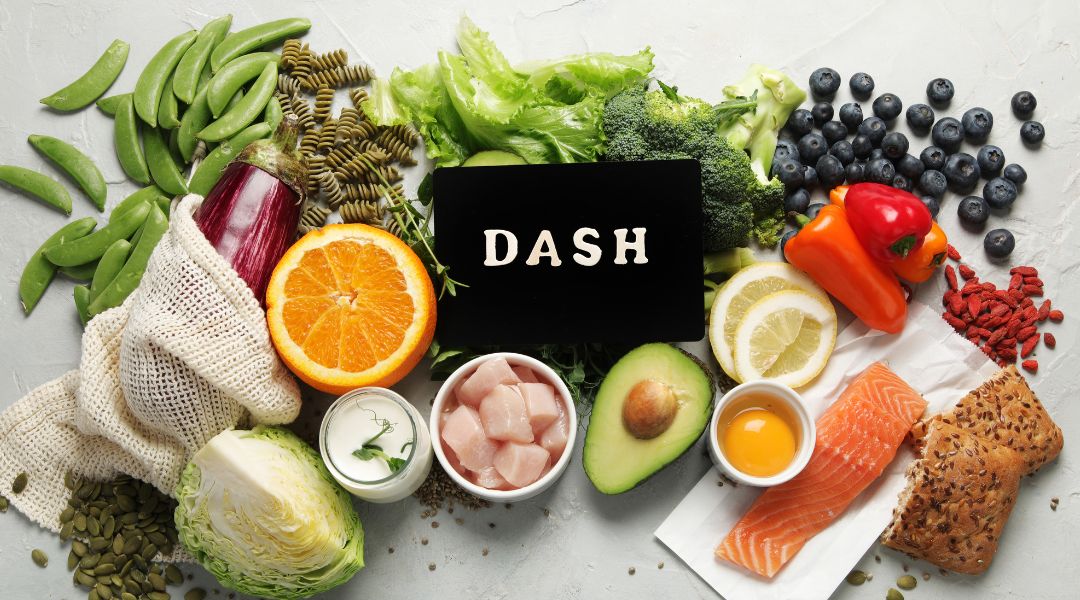
Often silent, high blood pressure (hypertension) affects more people than we think. Without noticeable symptoms, it can still have a significant long-term impact on cardiovascular health. The good news? What you put on your plate can actually help regulate your blood pressure!
By adopting a few simple daily habits, you can keep your blood pressure under control while enjoying delicious, balanced meals. Discover how better eating can support your heart health—without sacrificing enjoyment.
1. Understanding High Blood Pressure
1.1 What is Hypertension?

High blood pressure (hypertension) occurs when blood exerts excessive force against artery walls. It is diagnosed when:
- Systolic pressure (top number) exceeds 140 mmHg
- Diastolic pressure (bottom number) is higher than 90 mmHg
👉 Ideally, optimal blood pressure is below 120/80 mmHg.
1.2 Why is it Important to Maintain Healthy Blood Pressure?
Elevated blood pressure puts strain on the heart and arteries, increasing the risk of heart disease, stroke, and kidney failure over time. Adopting healthy eating habits can help prevent these complications and maintain optimal blood pressure levels.
2. Nutrition: A Key Tool for Managing Blood Pressure

Certain foods help regulate blood pressure, while others can raise it. Here’s how to adjust your diet for better balance.
2.1 Limit Salt: A Small Change with a Big Impact!
Salt promotes water retention, increasing pressure in blood vessels. The World Health Organization (WHO) recommends limiting sodium intake to less than 2300 mg per day (about 1 teaspoon of salt). However, processed foods often contain excessive amounts!
🚨 Foods to Limit:
- Deli meats (ham, salami, bacon, etc.)
- High-sodium cheeses (feta, Parmesan, cheddar, etc.)
- Pre-packaged meals and canned soups
- Salty snacks and crackers
- Processed sauces (soy sauce, teriyaki, BBQ sauce, etc.)
- Store-bought baked goods (bread, muffins, pastries)
- Canned foods (soups, anchovies, olives, etc.)
- Added table salt when cooking or eating
💡 Helpful Tips:
- Replace salt with herbs and spices (turmeric, basil, garlic, lemon).
- Choose low-sodium versions of packaged foods, such as soy sauce or canned goods.
- Cook homemade meals: A grilled chicken sandwich is much better than store-bought processed ham!
- Use the "low-sodium" filter in our recipe section for inspiration.
2.2 Adopt the DASH Diet: Your Anti-Hypertension Ally

The DASH diet (Dietary Approaches to Stop Hypertension) is designed to lower blood pressure by emphasizing potassium, magnesium, and fibre-rich foods.
2.2.1 Fill Half Your Plate with Fruits & Vegetables
Fruits and vegetables naturally contain potassium, which helps balance blood pressure.
💡 Helpful Tips:
- Add fruit to your morning oatmeal or yogurt snack.
- Prepare a winter persimmon salad for a colourful, antioxidant-rich appetizer.
- Keep pre-cut veggies in your fridge for a quick and nutritious snack.
- Sneak more vegetables into your meals: Add finely chopped zucchini, peppers, or spinach to sauces, omelettes, and soups.
2.2.2 Choose Low-Fat Dairy Products
Low-fat dairy is an excellent source of calcium, potassium, and magnesium, essential for blood pressure regulation. These products also contain less saturated fat, which can negatively impact heart health.
💡 Helpful Tips:
- Swap heavy cream for plain yogurt in sauces.
- Choose cheese with less than 20% M.F., like in these chicken and three-cheese stuffed shells.
- Use cottage cheese in lasagna or pasta dishes for a lighter, protein-rich alternative.
2.2.3 Opt for Whole Grains
Whole grains provide essential fibre for heart health.
💡 Helpful Tips:
- Replace white pasta with whole wheat pasta—start with a half-and-half mix to adjust to the taste.
- Add quinoa to salads, as a side dish, or even as a breakfast porridge.
- Swap white rice for brown rice or whole wheat couscous for extra fibre and nutrients.
- Prepare whole grain-based snacks, like oatmeal cookies.
2.2.4 Prioritize Lean Proteins
Lean meats, fish, tofu, and legumes provide excellent protein without excess saturated fats.
💡 Helpful Tips:
- Choose grilled fish or roasted chicken over processed meats.
- Add legumes to meals, such as in chili or hearty soups.
- Try vegetarian meals once or twice a week with tofu, tempeh, textured vegetable protein (TVP), or legumes—like in a chickpea salad or lentil curry.
- Choose protein-rich snacks, such as low-fat cottage cheese, hard-boiled eggs, or healthy Nanaimo bars.
2.2.5 Cook with Healthy Fats
Vegetable oils (olive, canola, avocado, flaxseed, or camelina oil) provide essential fats that support heart health. Nuts and seeds are also rich in omega-3s, promoting cardiovascular benefits.
💡 Helpful Tips:
- Bake or steam instead of frying with butter; drizzle olive oil over vegetables after cooking for flavour.
- Try a homemade vinaigrette with camelina oil, Dijon mustard, and lemon.
- Add flaxseeds or chia seeds to smoothies, salads, or fruit bowls.
3. Lifestyle Habits for Better Blood Pressure Control

- Stay active: Aim for 30 minutes of daily movement, even in short sessions. Include resistance exercises like yoga or light weight training.
- Manage stress: Chronic stress can increase blood pressure. Try meditation, deep breathing, or nature walks to relax. Spending time outdoors helps reduce stress!
- Limit alcohol: Excess alcohol can impact blood pressure. Try homemade mocktails for a fun, alcohol-free option.
- Maintain a healthy weight: Excess weight puts added pressure on the heart and blood vessels, making blood pressure harder to regulate. Need personalized guidance? A weight-loss nutritionist can help you adopt sustainable eating habits tailored to your needs.
4. Take Care of Your Heart—Without Sacrificing Enjoyment!

Managing hypertension doesn’t mean giving up delicious meals! By adding more fruits, vegetables, whole grains, and lean proteins while reducing salt and choosing healthy fats, you can maintain healthy blood pressure while still enjoying food.
Looking for personalized support? Our health professionals are here to guide you. Book an appointment with a registered dietitian for tailored advice and strategies to support your well-being.

